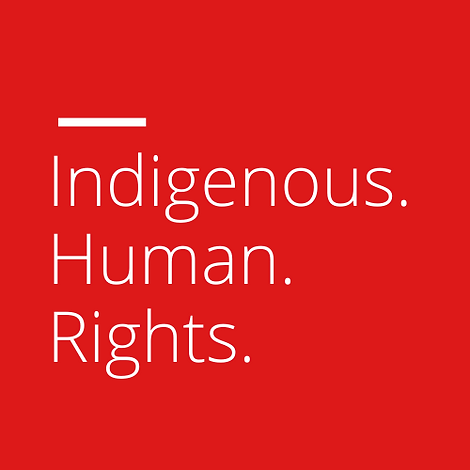
INDIGENOUS
PEOPLES
The Indigenous Human Rights Program is a partnership between PBSC and the Ontario Federation of Indigenous Friendship Centres (OFIFC). The purpose of the program is to combat anti-Indigenous racism and discrimination by working with Friendship Centres to build knowledge about human rights amongst urban Indigenous communities, and to empower individuals to make decisions about their rights. We do this through free human rights legal clinics located directly within Friendship Centres in Ontario, and the PBSC Indigenous Human Rights Podcast.
A first of its kind in Canada, the program is led by an Advisory Council and two Elders. It is supported by partners the Canadian Human Rights Commission, the Ontario Human Rights Commission, the Human Rights Legal Support Centre, and McCarthy Tétrault, and by the University of Ottawa Faculty of Law, the Henry N.R. Jackson Faculty of Law at the University of Toronto, Osgoode Hall Law School, and Lakehead University Bora Laskin Faculty of Law.
The Indigenous Human Rights Program would not be possible without the generous support of its funders. In 2019, PBSC won the American College of Trial Lawyers' prestigious Emil Gumpert Award. These funds acted as seed money to develop the program and tackle an unexpected but necessary pivot to virtual legal services when the COVID-19 pandemic hit in March 2020. The Indigenous Human Rights Program was then generously funded by the Law Foundation of Ontario Access to Justice Fund during 2021-2022. Today, the Indigenous Human Rights Clinic at Odawa Native Friendship Centre is supported by a grant from the Community Grants Program - Ottawa Community Foundation.
URBAN
In Ontario, 85.5% of First Nation, Métis, and Inuit people live in urban or rural areas.
RACISM
In one study, 77.6% of respondents reported that racism against Indigenous people by non-Indigenous people is a problem in cities.
CULTURAL COMPETENCY
In order to advance the process of Canadian reconciliation, the TRC calls on lawyers and law students to be trained in inter-cultural competency, conflict resolution, human rights, and anti-racism.
CLINICS
Indigenous Human Rights Clinics provide free summary legal advice and information about human rights and discrimination to urban Indigenous communities.
They are managed by the Thunder Bay Indigenous Friendship Centre and Odawa Native Friendship Centre, with support from PBSC and the OFIFC.





PODCAST
The Indigenous Human Rights podcast is produced by Pro Bono Students Canada's Indigenous Human Rights Program. We're a group of law students shining a light on the experiences of Indigenous people at human rights tribunals across Canada. Listen and learn what it's really like to fight for your rights in the colonial legal system.
Jamie McGinnis: Discrimination on Public Transit — Nakogee v. North Bay Transit
A new episode from the Indigenous Human Rights Podcast! Our hosts, Daniel Jolic and Brianna Brumen, talk to lawyer Jamie McGinnis from the Human Rights Legal Support Centre, who represented the Nakogees at the Human Rights Tribunal of Ontario in their fight for justice against the North Bay Transit Service. We examine the discrimination that the Nakogees endured while attempting to access a public transit bus, and the strength it took for them to speak out against this discrimination. We also highlight the work they undertook with Ms. McGinnis and the Human Rights Legal Support Centre to hold North Bay Transit accountable
Photo by Fallon Benson for PBSC National
55
students & lawyers trained
As a Cree law student interested in working with Indigenous communities, being part of the Indigenous Human Rights Program has been an incredibly valuable and rewarding experience. The cultural competency and human rights training, as well as the practical experience, have been my favorite parts so far. So many practical skills, like interviewing clients and trauma-informed lawyering practices, are not taught in a traditional law school class and I am especially grateful for the opportunity to learn and practice these skills in the context of Indigenous human rights.
- PBSC law student, University of Ottawa
200+
community members reached
User friendly was key. A quick summary of my issue was met with a thorough response. It was appreciated.
- Odawa Native Friendship Centre Indigenous Human Rights Clinic client, 2021
1500+
listeners
I believe that the podcast's greatest value is that it provides encouraging words for other Indigenous Peoples listening in. When I listen to each episode, I think of that person's courage and I'm inspired by their resiliency to stand up to those who discriminated against them. Their strength emboldens me to also stand up to racism. I believe the stories shared on the podcast are exemplary of our people's perseverance and they deserve to be heard.
- Indigenous Human Rights Podcast listener
FUNDERS
PARTNERS
ART BY MO THUNDER
.jpg)
Mo Thunder (They/Them/Theirs) is Onkwehonwe [Onyota’a:ka with family ties to Oneida Nation of the Thames x Aamjiwnaang First Nation] and French-Canadian. They’re a non-binary, neuroemergent artist x visual storyteller from a small town along the St. Clair River and are currently based on One Dish One Spoon Territory x Tkaronto (Toronto), which is a Kanyen'kéha: (Mohawk) word for ‘where there are trees standing in the water’.

CONTACT
To learn more or get involved, please contact
Stephanie Giannandrea.
Are you in need of legal advice, information or representation?






.png)



